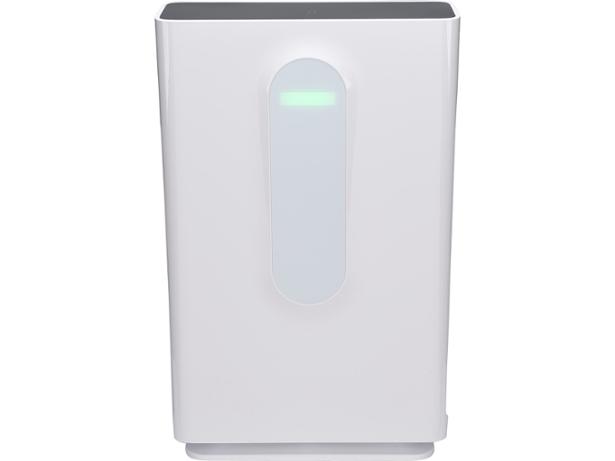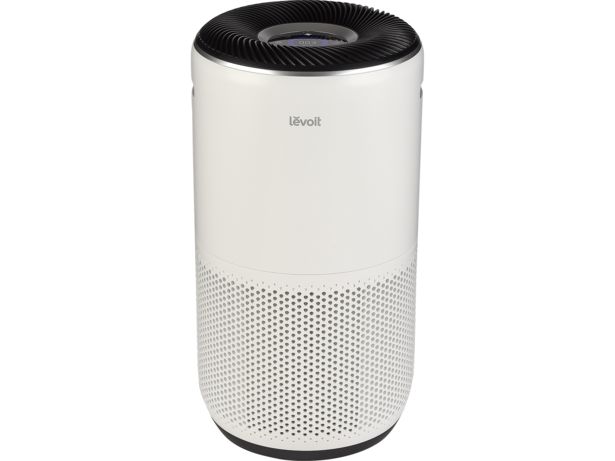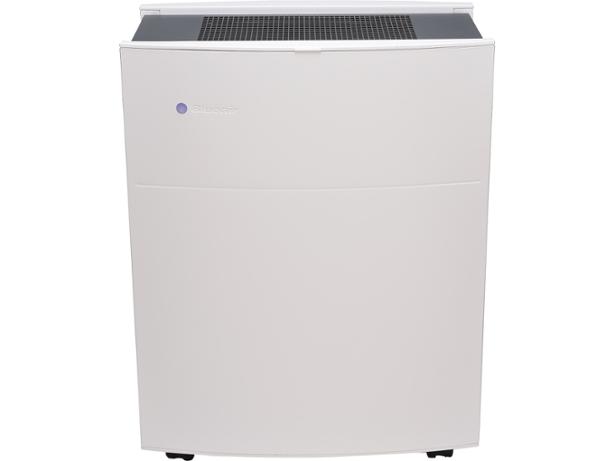
By clicking a retailer link you consent to third party cookies that track your onward journey. If you make a purchase, Which? will receive an affiliate commission which supports our mission to be the UK's consumer champion.
Should you buy a Dyson air purifier?

While the majority of air purifiers look like uninspiring white boxes, Dyson air purifiers are works of art. But looks aren't everything, which is why we regularly go hands-on with the latest Dyson air purifiers in the Which? test lab.
To find out if a Dyson air purifier is right for your home, we suggest you have a read through our expert guide – we have the juicy details on key features to look out for, typical price and performance. Plus, you can find out how we've scored Dyson air purifiers, including the Purifier Hot+Cool Formaldehyde HP09.
If you decide that a Dyson air purifier is right for you, consider checking in with our Dyson air purifier reviews to see which ones are worth buying.
Be inspired to make home improvements. Sign up for our Home newsletter – it's free monthly
Dyson air purifiers: key features
Air multiplier technology
Dyson air purifiers are advertised as having Air Multiplier technology, which the brand claims mixes and circulates the air to reach every corner of the room it's sat in.
Air quality sensor and automatic mode
Like many air purifiers, Dyson models have an air quality sensor, which prompts the machine to spring into action when needed. That means you can leave the machine on automatic mode rather than needing to adjust it yourself.
Dyson air purifiers will also give you information about the different airborne pollutants in your room. You'll be able to see real-time information about the quality of the air in your room on a small screen on the machine itself, and also in the Dyson Link app. The information you'll receive tracks the following:
- PM 2.5 and PM 10 – particulate matter pollutants.
- VOCs – Volatile Organic Compounds, such as acetone, methanol, benzene, ethanol, xylene and formaldehyde.
- NO2 – Nitrogen Dioxide.
An increasing number of air purifier brands are offering something similar. For example, the Philips Series 3000i AC3033/30 (£400) has a built-in display that shows a number and a light indicating how polluted the room is. We can't say how accurate this feature is, so you'll have to take the manufacturer's word for it.
Another option is to buy a personal air quality monitor that you can clip onto your bag or belt. Consider one of these if you want information about the air quality outside, and you have some flexibility to make changes to your daily routes. For example, you can try walking to work via a park rather than a busy main road.
Alternatively, you could download a free air quality app, which will give you information about the air quality in your general area. Some examples include Plume Labs Air Quality, Air Matters (which connects with Philips smart air purifiers) and London Air.

Filtration
Dyson air purifiers contain a filtration system that combines a HEPA filter (High Efficiency Particulate Air filter), designed to capture 99.95% of ultrafine particles, and an activated carbon filter, designed to remove gases.
We would always recommend buying an air purifier with a HEPA filter. To use the term HEPA filter, a filter must meet certain standards of filtration efficiency. Filters with names like EPA, HEPA-type and HEPA-style aren't guaranteed to meet the same standards.
There's more to a good air purifier than a HEPA filter, though. In fact, our expert tests have uncovered a number of flawed air purifiers deserving of a Which? Don't Buy title, despite the fact they have HEPA filters.
HEPA filters can't trap gases or unpleasant odours, which is why it's also good to have a carbon filter. It isn't possible for us to test the efficacy of carbon filters, but so many air purifiers have them that you lose nothing by opting for a model with one.
Heater function
Some Dyson models are designed to heat or cool a room while they clean. The heating function will come on once the machine senses a drop in temperature. Then, the air purifier will switch to standby mode once the target temperature has been reached.

Humidification function
Dyson has made models that come with a humidifying function, which the brand claims will automatically maintain the optimum moisture level in your air, making for a more comfortable environment. You can turn off the humidification function if you want to, so that the machine just operates as a purifying fan.
If you suffer from dry skin, a dry nose, throat or lips, or sinus congestion when the air in your home is dry, then a humidifier could help (although you should consult a doctor if your problems are severe).
You'll need to run a deep-clean cycle every now and then. You can input the level of water hardness in your area into the app, and then you'll get prompts when Dyson estimates that it's time to run a deep clean.
Timer
All Dyson air purifiers come with a timer. This could be useful if you routinely adjust the settings at certain times – let's say, you always want to have it running hard during the day and turned off or turned down at night when you're sleeping.
Remote control, smart control and voice control
There isn't, generally speaking, much you can do in terms of controlling the settings on Dyson machines themselves.
Instead, some Dysons come with a remote control (magnetised, so that you can store on the machine when not in use), some can be controlled via voice assistant, and some can be controlled via the Dyson Link smartphone app – through which you'll also be able to see Dyson's measurements of the quality of the air in your room.

How much does a Dyson air purifier cost?
You can expect to spend upward of £400 for a Dyson air purifier. The cheapest Dyson model currently on our site is the Dyson Purifier Cool TP07 (£389) while the priciest is the Dyson Purifier Hot+Cool Formaldehyde HP09 (£570).
For context, the air purifiers we've tested across all brands start at around £60 and go up to 10 times that much. It's rare to find a great model below £250, but there are several good ones in the £250-£400 range.
Dyson air purifiers in the Which? test lab
Here's a complete list of Dyson's air purifiers that we've put through our expert lab tests:
- Sign up to reveal
- Dust removal
- Quietness
- Ease of use
Test score Full Access first month £5, then £10.99 per month, cancel at any time
Already a member?Log in - don't buy
Sign up to reveal- Dust removal
- Quietness
- Ease of use
Test score Full Access first month £5, then £10.99 per month, cancel at any time
Already a member?Log in
How we test Dyson air purifiers
At Which?, we test air purifiers in a sealed chamber, measuring how well each model removes dust, pollen and smoke particles from the air. We use dust, pollen and smoke because they are common indoor air pollutants, they represent a range of particle sizes, and they are used in the air purifiers industry standard test.
We calculate the CADR (Clean Air Delivery Rate) of each machine – the rate at which each machine removes airborne pollutants from the air and delivers clean air back to the room.

We also check how noisy each air purifier is on high and low power, how easy it is to remove and replace the filters and, if the air purifier has smart connectivity, how easy the smartphone app is to use.
For more details, find out how we test air purifiers. Alternatively, explore our full selection of air purifier reviews.






















